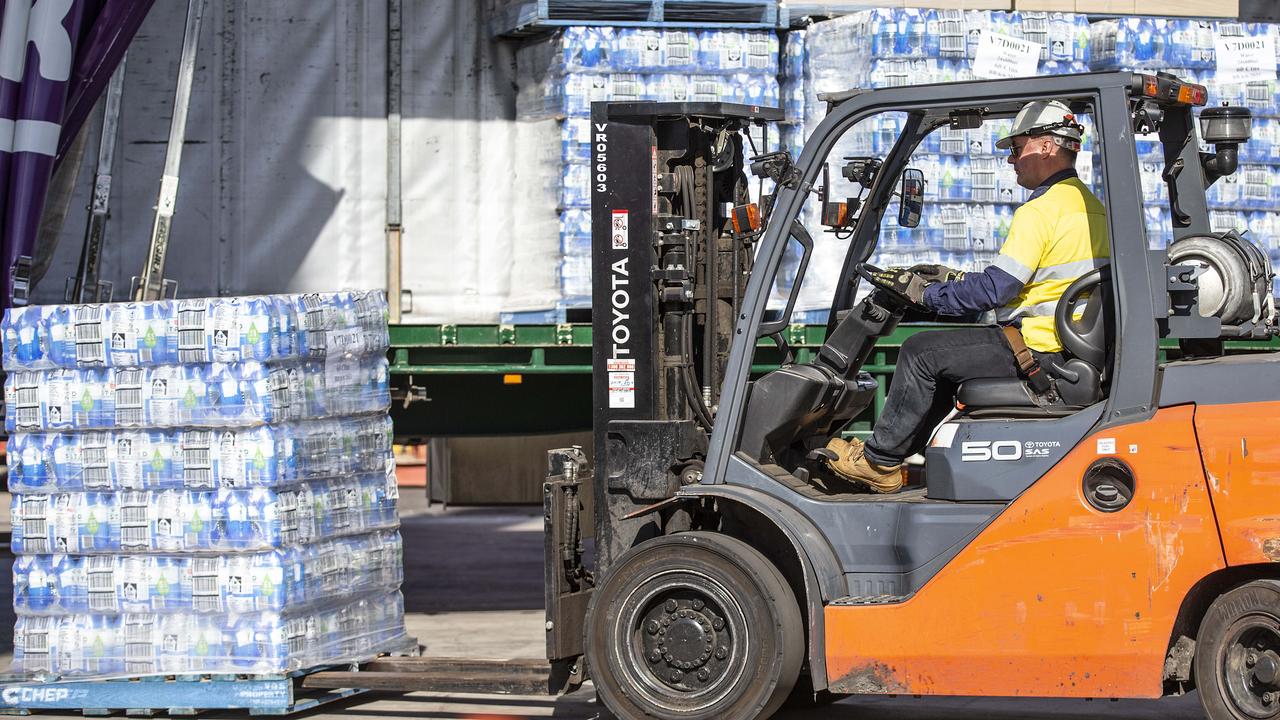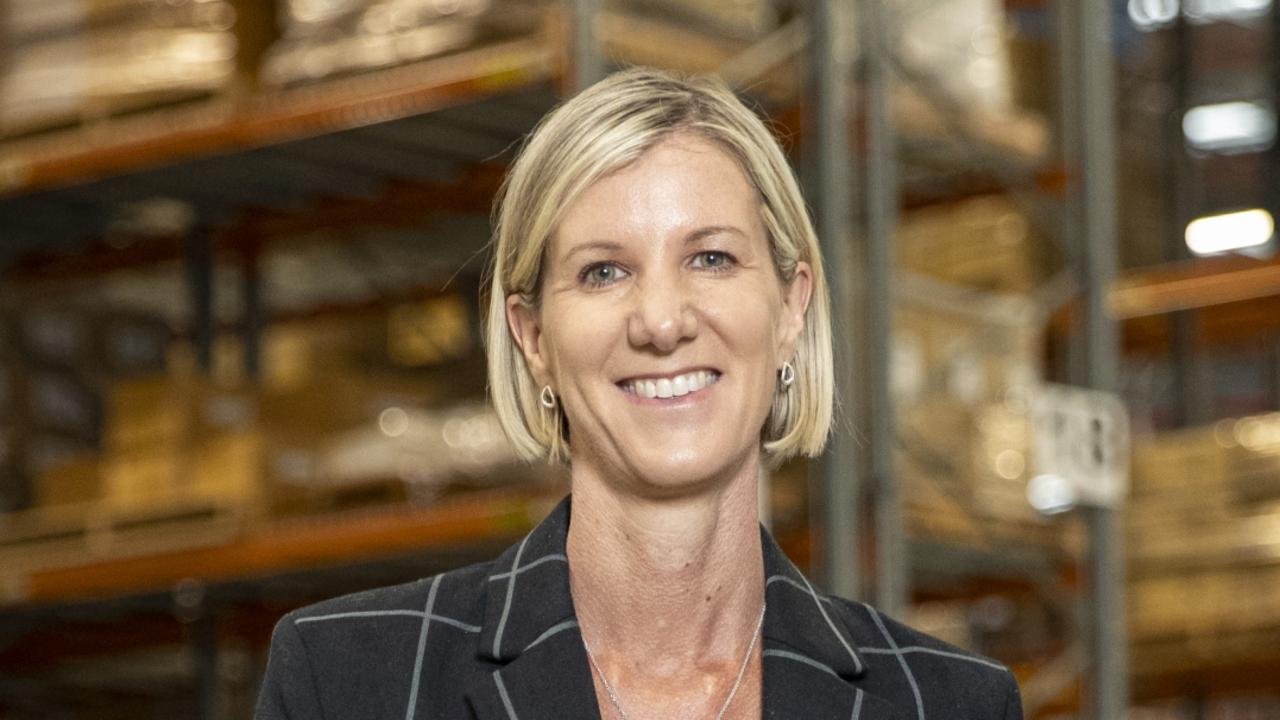Covid, bushfires, war to blame for extreme pallet shortage: Brambles
A staple at any warehouse, supermarket or furniture store and made cheaply from low-grade wood, pallets are set to lead to an increase in your daily cost of living.

Business
Don't miss out on the headlines from Business. Followed categories will be added to My News.
At any one time Australian’s biggest owner and supplier of wooden pallets has about 300 million of the previously cheap and plentiful items circulating the globe.
But a perfect storm of world events means Brambles is again warning extreme shortages will flow down to consumers.
Pallets are the invisible backbone of the global supply chain carrying consumer goods to and from 55 countries that enable businesses to ship their products from wharves and warehouses to distribution centres, stores and ultimately into the hands of shoppers.
As one pallet expert has said, “pallets move the world”.
Several major factors have led Brambles – which owns hundreds of millions of pallets that circle the world and are used by a range of businesses to ship goods – to repeat warnings about the shortages.
Timber price hikes
Brambles chief executive Graham Chipchase on Thursday described the rise in lumber prices over the last three months as “extraordinary”.
While Brambles is trialling a plastic pallet program with US retail giant Costco, its wooden CHEP pallets remain the dominant pallet in the system.
Typically the companies that manufacture and then rent out pallets make their wooden pallets from oak or Southern Yellow Pine.
This dependence on wooden pallets has left the industry highly vulnerable to the rocketing price for timber, which tripled through the first 18 months of the Covid pandemic and has fed into inflation.
Bushfires have also played a part, destroying the supply of trees used to create the pallets.
Some countries are also reportedly facing a shortage of nails, with around 80 nails needed to make a single wooden pallet.

Labour shortages
Traditionally broken pallets would be fixed quickly and returned back to the stockpile.
Like many industries, labour shortages have left Brambles scrambling for workers to repair pallets.
It means lengthy repair times to fix broken pallets has caused a shortage of this core workhorse of the international economy and businesses at the end of the supply chain are feeling the pinch.
Supply chain blockages
Making things worse for Brambles and other owners of wooden pallets is the disruption to global supply chains which has slowed the circulation of hundreds of millions of pallets around the world.
The war in Europe has also exacerbated the global shortage.
It is estimated that 20 million pallets were exported from Russia, Belarus and Ukraine to Europe every year but with the outbreak of conflicts and trade sanctions that source of supply has dried up and placed pressure on other suppliers to fill the gap.
How it impacts consumers
Coles chief executive Steven Cain has already dubbed the shortage as “pallet-gate” while many manufacturers and food producers in Australia have had to halt or slow production at their factories as they didn’t have the available pallets to send their finished goods to customers.
Brambles is adding surcharges to its customers for their rental of wooden pallets to claw back some of its higher costs.
While there is hope that plastic pallets, while more expensive than wooden pallets, could be the future of the industry, this is still only in a trial phase and Brambles is yet to decide if it will pour hundreds of millions of dollars into creating a new army of plastic pallets to replace its 300m wooden ones.
Brambles chief executive Graham Chipchase said on Thursday that the combination of the shortage, slow repair times and price hikes in lumber had forced Brambles to lift its own prices to claw back some of its higher costs and inflation
“The supply chain dynamics and inflationary pressures we noted in the first half of the year were further exacerbated in the third quarter by the conflict in Ukraine and Russia. Ongoing disruptions in global freight and lumber markets continue to impact the flow of goods across supply chains resulting in higher costs across our business,” he said.
More Coverage
Originally published as Covid, bushfires, war to blame for extreme pallet shortage: Brambles









